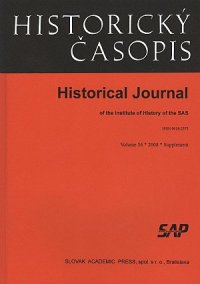Zdravotná polícia a medicínske teórie v dielach uhorských lekárov (1770 – 1830)
Health policy and medical theory in the works of Hungarian physicians (1770-1830)
Author(s): Teodora Daniela SechelSubject(s): History
Published by: Historický ústav SAV
Keywords: History; health; policy; plague; Hungary;18th century; medical; discourse
Summary/Abstract: In the last decades of the 18th century, physicians in Hungary and Transylvania emphasized direct contagion as the main way of plague transmission. The region with the common borders between Wallachia, Moldavia, Serbia and indirectly, with the Ottoman Empire was considered a reservoir for plague. A. Chenot’s and F. Schraud’s most important contribution to knowledge and prophylaxis of plague was the recognition of the connection between movement of population and the transmission of the disease. Thus the medical discours over contagion drew the attention to both preventive and policing methods in order to eradicate the epidemics. Medical police practices reveal the complex interplay among the economy, politics, and medicine. Moreover, the direct contagion theory suited the police regime developed by Francis I as a consequence of the French Revolution and Napoleonic Wars. The experience of many epidemics legitimized the strengthening of a military cordon on the border as well as the introduction of draconian punishments, including the death penalty, the control of travelers, correspondence, and public meetings.
Journal: Historický časopis
- Issue Year: 2011
- Issue No: 03
- Page Range: 427-441
- Page Count: 15
- Language: Slovak

